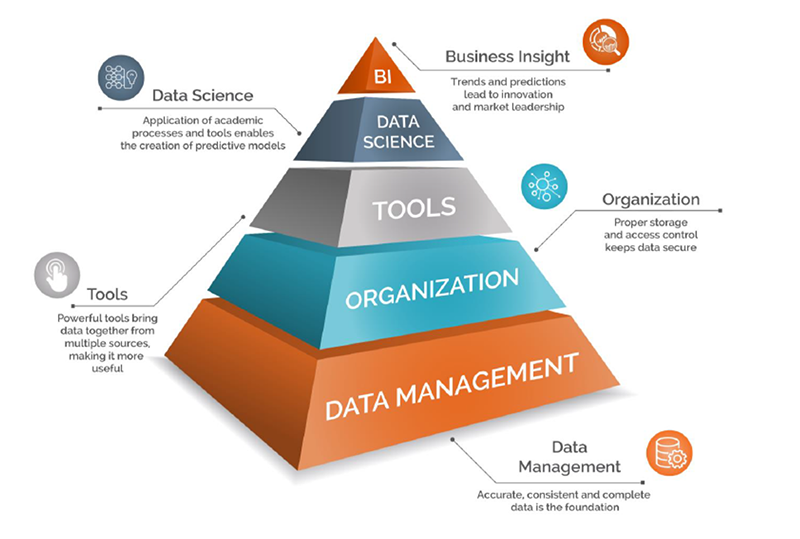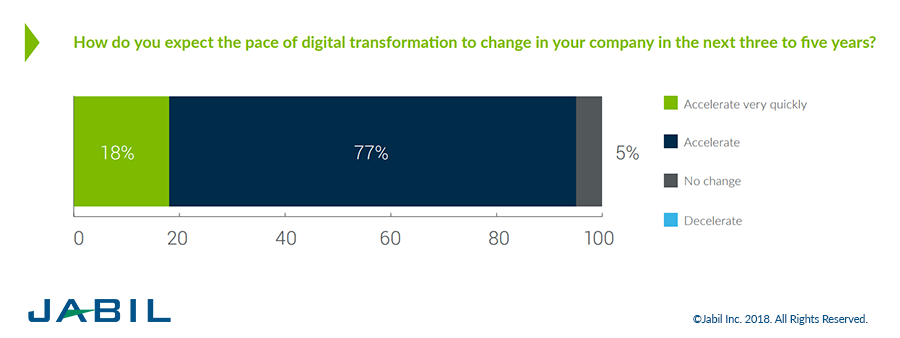Data Science: The Lifeblood of the Digital Economy

As digitization and digital transformation take hold, massive amounts of data are produced. The advent of the Internet of Things (IoT) has further enriched the data stream with unprecedented amounts of information about everything—from consumer behavior to customer sentiment and predicted buying patterns.
IBM shares that 2.5 quintillion bytes of data are created every day. With an estimate of more than 20 billion connected devices to be on the market by 2020, you can envision how our data sets will grow over the coming years. Another study by EMC claims that the size of the digital universe is doubling every two years and will multiply tenfold by 2020 to 44 trillion gigabytes.
It's a stunning commentary. But, oceans of data are useless without a vessel to navigate them.
Winning in the Digital Economy
Data-driven companies will be the winners in the digital economy. To that end, it is critical to invest heavily in infusing the discipline of data science into your company for the benefit of your customers and employees. It all starts with a data framework like the one we use within Jabil.

At the foundation of that framework is data management, which requires complete, accurate and up-to-date data. At Jabil, we ensure that our own data – and that which details data about our suppliers and customers – is comprehensive, accurate, secure and complete. This allows us to optimize both operations and customer and supplier experiences. As I mentioned in a previous article, the IT foundation is vital to success.
Next is data organization. This speaks to where and how we house data and who can access it. Because information security should always be top-of-mind, our teams work diligently to ensure the right people have access to the right data at the right time to service our customers and to allow our businesses to not only function efficiently, but to use that data to innovate. How do you organize your organization's data? How do you ensure it is secure? These are questions that need to be answered by your IT team.
Providing access to various data sources isn’t helpful if the data sources can’t talk to each other. Our IT team is broadening these lines of communication, for example, by building powerful data tools like the Enterprise Information Portal and the Jabil InControl™ platform to allow data from different sources to be joined to provide never-before-seen views into our supply chain and to discover relationships and dynamic trends in our operations. The seamless connectivity of your data is an early enabler for a strong digital transformation. Without it, your digital transformation efforts will be crippled.
People are equally as important. Without knowledgeable resources to interpret and leverage this data, our efforts would be pointless, so Jabil also invests in the education necessary to make our employees into citizen data scientists. By teaching our employees how to use the discipline and tools of data science in their everyday jobs, we can rely on their natural inquisitiveness to uncover insights, trends and epiphanies that lead to product innovation, more efficient operations and new business opportunities for Jabil and our customers. Supporting the professional development of your employees is a "win" across a varied spectrum.
Data Scientists by the Numbers
According to IBM, the number of jobs for all US data scientists will increase to 2.72 million by 2020. These jobs typically remain unfilled longer than the market average for other positions, mostly due to talent shortages.
In addition, Jabil's 2018 Digital Transformation Trends Survey reveals that companies are becoming more focused in their efforts and 95 percent of respondents expect the rate of digital transformation to accelerate.

So the "ask" is clear: we must take action now to ensure we have the right talent with the right skills in the right positions to take advantage of the reams of data that create opportunities for our businesses. How do we do that? Your existing employee-base is certainly not a bad place to start.
As part of Jabil's Digital Transformation Survey, 74 percent of participants shared that they found the cultural and organizational changes more challenging than the technology changes. We believe that giving your employees the skills necessary to succeed in a digital economy will go a long way toward easing that transition.
Jabil's Data Science Program
Jabil has made an investment in a one-of-a-kind program that allows employees in the U.S., Singapore, China and Malaysia to partner with local universities to take an intensive, 12-week course in Data Science. During the course, employees are introduced to theories of data, the tools and methodologies of collecting and analyzing data, building predictive models and extracting actionable insights from their work. Past case studies have focused on:
- An assessment of project risk, based on an analysis of the project documentation
- The impact of external influences on vendor pricing and how those prices would be affected
- The impact of changes to purchase orders based on the timing of the changes
- Sentiment analysis using Twitter posts and other external sources to anticipate trends
Those types of business insights are the ultimate prize. And this is why they sit at the top of our framework. The goals for your organization may be completely different or may be variations of our goals, but they could unlock untold potential within your company. Every company's internal data has a story to tell; it is just a matter of listening and interpreting that data with the right trained resources.
The capabilities of each layer in the framework provide meaningful, data-driven insights that can help you navigate through each area of your customer experience and your digital transformation.
Whether you partner with universities to provide the necessary training to your employees or develop internal programs to meet the same objectives, don't forget: the time is now. As you embark on your digital transformation journey, agility is the key.
Jabil's 2018 Digital Transformation Report
Click the download button to get Jabil's report, based on a survey of more than 200 business and technology stakeholders.